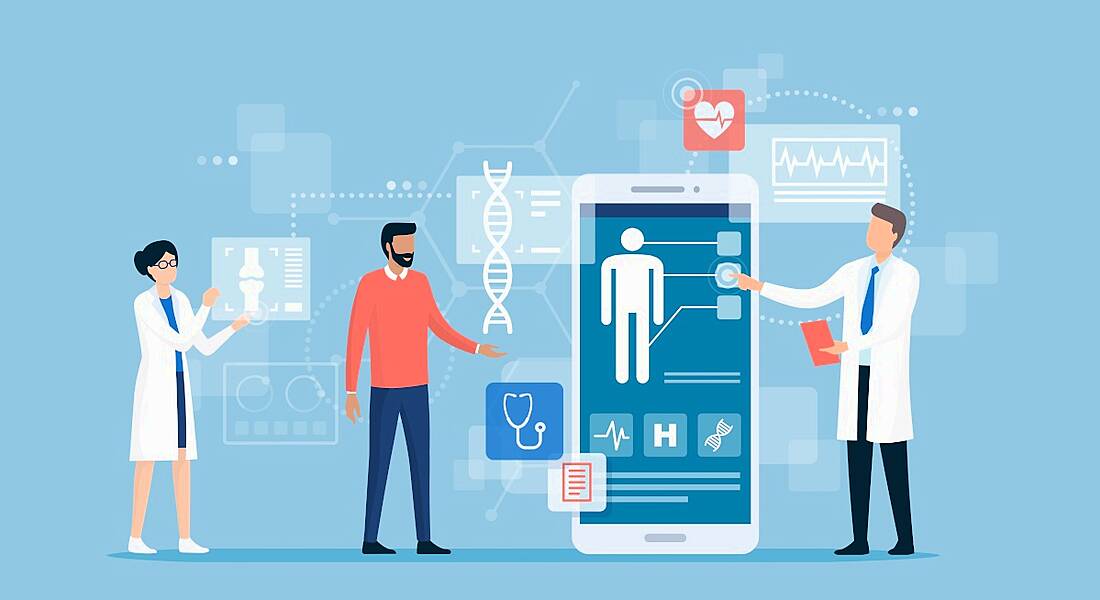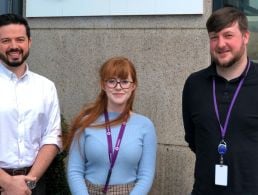According to EIT Health’s Elaine Murray and Sneha Saloni, it’s time to embrace digital upskilling within the healthcare industry.
European Commission president, Ursula von der Leyen, announced last year that 2023 would be the ‘European Year of Skills’ with the objective of “a Europe fit for the digital age”. It will promote a mindset of reskilling and upskilling, helping people develop the right skills for the most in-demand jobs.
So, what does this mean for the healthcare sector? The European Health Parliament previously stated that, “digital technology is an inevitable part of the future of European healthcare” and called for upskilling healthcare workers.
Digital technologies such as AI, telemedicine and robotics, present huge potential for the way healthcare can be delivered, by maximising the reach and impact of various health services.
Preference is slowly shifting from brick and mortar to virtual healthcare and hence, many in the health sector are starting to reimagine and embrace digital to maximise efficiency and efficacy.
The digital skills gap
Healthcare professions make up approximately 10pc of the workforce in Europe, however estimates forecast that there is a shortage of approximately 1m health workers (600,000 in nursing, 230,000 physicians). Data demonstrates that healthcare companies are not visible among the most attractive employers in the eyes of talent.
Couple that with a 2020 report by the European Commission which stated that “shortages of software skills are now omnipresent” across Europe. The pandemic has not only boosted demand for tech-enabled healthcare services, with 90pc of all jobs in health soon to require an element of digital skills, but it has also widened the skill gap, placing stress on existing healthcare systems.
That means the industry is facing challenges in both recruiting into the sector and equipping the staff it does have with the digital skills they need. Many are either resistant or not well informed about new digital tools and systems. Lack of information and training among clinical and support staff acts as a deterrent to improving efficacy in patient care outcomes.
We therefore find ourselves at a critical juncture. Digital transformation in healthcare means increasing pressure on the existing system to perform, while sustaining and acknowledging the widening skills gap. Adequate investment in the workforce’s digital skills and digital literacy is now crucial.
Empowering healthcare professionals through digital upskilling
EIT Health, Europe’s largest health innovation network, is working to combat the talent shortage in the healthcare industry through its WorkInHealth Foundation. This aims to promote healthcare as a sector in which talent can thrive in Europe, particularly in the areas of digital, commercial, and innovation. EIT Health’s pan-European network links industry and academia which means it can tap into both recruiters and candidates, matching talent across the sector.
For those on the frontline, it can be difficult to stay abreast of so many fast-changing technologies entering the market. Whether it is a hospital administrator seeking to become proficient at using chatbots, cleaning staff adopting autonomous disinfection software, or a physician showing a patient how to use a medical device remotely, technology is integrated at every level of health service delivery.
A holistic approach needs to be adopted for upskilling by creating regular training opportunities for healthcare workers, senior executives and support staff so they can develop the digital expertise they need to carry out their roles efficiently and effectively.
There is also opportunity for institutions to shift from traditional training frameworks to digital alternatives. For example, training programmes to understand the integration of AI, data management, analytics and machine learning into existing infrastructure.
Initiatives such as the HSE’s Spark Innovation Programme create regular knowledge-building opportunities for healthcare staff in areas such as AI, design thinking, and innovation.
The Healthcare Transformation Academy, coordinated by EIT Health and organisations from the European University Hospital Alliance, offers high-quality and affordable on-demand courses in digital transformation, innovation management, high-value care and leadership for healthcare professionals to upskill.
The WorkInHealth Foundation also aims to support in upskilling and reskilling, increasing the volume of talent in the areas with greatest demand and boosting competitiveness of the European health industry. The initiative is in full alignment with the ambitions of the European Innovation Agenda as well as the EU Pact for Skills.
The European Year of Skills 2023 will help the healthcare sector navigate its digital transformation journey by address skills shortages in the EU, promoting a mindset of upskilling, which can ultimately improve patient care and increase reach in healthcare accessibility.
By Elaine Murray and Sneha Saloni
Elaine Murray is the communications and public affairs lead for EIT Health Ireland-UK. Sneha Saloni is the content manager for EIT Health Ireland-UK
A WorkInHealth Foundation Career Fair will take place online for free on 23–25 May, bringing together students, recent graduates and digital health, medtech and biotech recruiters.
10 things you need to know direct to your inbox every weekday. Sign up for the Daily Brief, Silicon Republic’s digest of essential sci-tech news.




